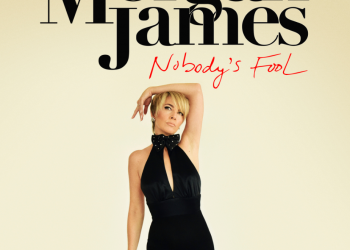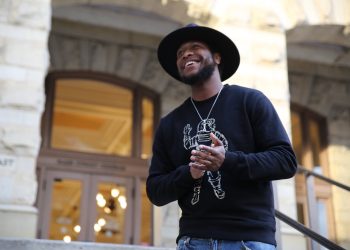Busta Rhymes is an iconic figure in the rap industry, and his 2008 single “Arab Money” featuring Ron Browz continues to be one of his most popular songs. The track was released during a time when many people were feeling the effects of the financial crisis, making its message even more timely and relevant than ever before. With its hard-hitting lyrics and infectious beat, this anthem has become a classic for hip hop fans around the world. In this article, we take a look at what makes “Arab Money” such an important song in Busta’s career and how it resonates with listeners today.
The first thing that sets “Arab Money” apart from other tracks is its controversial subject matter. Though some might think discussing wealth would be inappropriate given the economic climate at the time, Busta wasn’t afraid to talk about money openly without apology or regret. He uses powerful lines like “I’m talking ’bout stacks on deck/ I’m talking moolah by the truckload” to emphasize his point that having money can open up opportunities not available to those who don’t have it. This frankness appealed to audiences worldwide as they could relate to wanting success no matter their financial situation.
Additionally, Busta’s collaboration with Ron Browz creates an unforgettable soundscape throughout “Arab Money”. From start to finish, Browz’ production keeps us hooked with heavy synths and booming drums that are synonymous with trap beats of today. Coupled with Busta’s charismatic delivery and clever rhymes, it’s easy to see why this dynamic duo created something truly special that stands out among all of the rapper’s work over the years.
Background Of The Song
The song “Arab Money” is a 2008 single from the album Back on My B.S. by Busta Rhymes, featuring Ron Browz. The track was produced by Ron Browz and contains samples of Ed O.G.’s “Be A Father To Your Child” as well as Kool & the Gang’s Jungle Boogie. It has become one of Busta’s most notable songs due to its popularity in clubs across the world.
The lyrics for “Arab Money” focus mainly on money and materialism; a theme that is often prominent in hip-hop culture. The chorus says “I got so much Arab money I don’t know what to do with it/Throwin’ it all around like I’m tryin’ to lose it” which highlights the abundance of wealth enjoyed by some people who live in countries such as Saudi Arabia or Qatar. Additionally, there are references to expensive items such as cars, jewelry, and clothing, further emphasizing how these luxurious commodities can be acquired if you have enough money.
Overall, this club banger reflects an attitude towards life where having large amounts of money is seen as desirable and even necessary for success; yet at the same time warns listeners about the potential consequences that come with obtaining too much wealth too quickly without considering other aspects of life such as relationships or personal growth.
Analysis Of The Lyrics
The lyrics of “Arab Money” paint a vivid picture of excess and luxury, with references to designer clothing, high-end cars, and flashy jewelry. Busta Rhymes raps about having so much money that he doesn’t know what to do with it, suggesting both the abundance and frivolity that comes from being wealthy. His boastful attitude also speaks to rap culture’s fascination with status symbols such as expensive material goods.
However, beneath this lavish surface lies an underlying message that warns listeners against becoming too obsessed with wealth: “All these diamonds in my chain/Couldn’t buy me one thing,” Busta rhymes at one point in the song. Here we see how even if you have plenty of money, it cannot bring true happiness or long-term satisfaction. The chorus reinforces this idea by saying “Money ain’t nothin’ but numbers on a piece of paper/Don’t let it control ya like Vader.” This line serves as a reminder for us all to be mindful of our finances and not let them dominate our lives like they did Darth Vader in Star Wars.
Ultimately, “Arab Money” is an ode to wealth and modern consumerism while also cautioning its audience about the dangers of getting carried away by material possessions. By reminding us to remain aware of our own limitations when it comes to spending money and keeping focused on more important factors in life, the track provides an insightful perspective into hip hop’s relationship with money today.
Conclusion
In conclusion, Busta Rhymes’ “Arab Money” featuring Ron Browz is a song that speaks to the power of money and its ability to create an illusion of luxury. The lyrics are braggadocious yet meaningful as they discuss how material goods can act as a way for people to feel empowered. However, the song also serves as a reminder that true wealth comes from within and should not be dependent on external sources such as money alone. Overall, this song offers a unique perspective on money’s role in our lives and encourages us to find solace in ourselves rather than relying solely on external means of validation or success.
I appreciate this message because it challenges me to think differently about my relationship with money. It reminds me that financial security is important but shouldn’t come at the expense of one’s mental health or personal growth. Furthermore, it helps me recognize that even though I may have access to certain luxuries due to having more disposable income, those things don’t define who I am or give me real value. In essence, this song emphasizes the need for self-love and appreciation instead of searching for affirmation through monetary gains.
Overall, Busta Rhymes’ “Arab Money” featuring Ron Browz is an insightful track that provides thought-provoking insight into the complexities associated with wealth. Its captivating beat paired with clever wordplay make it enjoyable to listen to while simultaneously conveying an empowering message about taking control over one’s own life by valuing internal resources above all else.
Since 2005, Singersroom has been the voice of R&B around the world. Connect with us via social media below.







